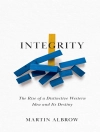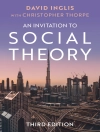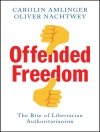This book provides a critical assessment of contemporary social theory for students in the social sciences. Delanty examines the writings of a number of key contemporary thinkers, including Habermas, Foucault, Bauman, Touraine, Giddens and Beck, and provides a clear account of the strengths and limitations of their work.
Table of Content
Acknowledgements.
Introduction.
The central Conflict of Modernity.
Knowledge and Culture.
Towards a Cognitive Approach.
.
1. Defining Modernity: The Quest for Autonomy.
Introduction.
Modernity’s Three Logics of Development.
Integration and Differentiation.
Conclusion: The Time-Consciousness of Modernity.
2. The Limits of Modernity: From Autonomy to
Fragmentation.
Introduction.
Rethinking Modernity.
Autonomy versus Fragmentation: The Loss of Unity.
Beyond the Classical Tradition: Contemporary Theories of the
Social. Conclusion: Towards a New Time-Consciousness.
3. Discourse and Democracy: Habermas’s Theory of
Modernity. .
Introduction.
The Problem of Democracy.
The Formation of Habermas’s Social Theory.
Rescuing Discourse: The Mediation of Democracy and Law.
Discursive Democracy in the Global Public Sphere.
The Question of Culture and Identity. Conclusion: Culture and
Discourse.
4. Creativity and the Rise of Social Postmodernism: Foucault,
Lyotard and Bauman. .
Introduction.
From Deconstructionism to Constructivism. Bauman: Ethics and
Postmodernity.
Conclusion: Beyond Postmodernism.
5. The Return of Agency: Touraine and Melucci.
Introduction.
Touraine: From Historicity to the End of the Social. Melucci:
Culture, Identity and Change.
Conclusion: Reflexivity and Democracy.
6. Reflexive Modernization: Beck and Giddens. .
Introduction.
Beck and the Risk Society. Giddens: Modernity, Reflexivity and
Trust.
Assessing Reflexive Modernization: The Question of Culture.
Conclusion: Reflexivity and Discourse.
Conclusion: Knowledge, Democracy and Discursive
Institutionalization.
Notes.
Bibliography.
Index.
About the author
Gerald Delanty is a Reader in Sociology at the University of Liverpool.












